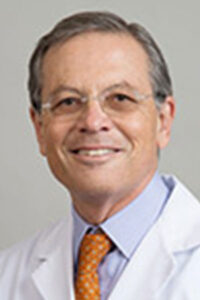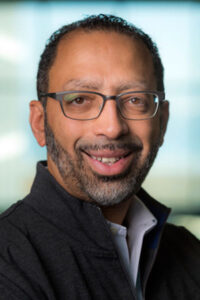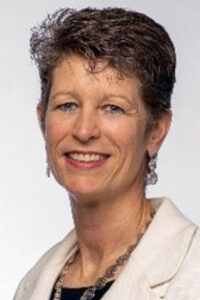Panel discusses importance of academia-industry collaboration
//
Estimated Read Time:

A special American Association for Cancer Research Annual Meeting 2021 forum featured a panel of successful cancer researchers, entrepreneurs, and investors discussing the “business of science” and their entrepreneurial experiences in turning scientific discoveries into approved and commercialized practice-changing cancer therapies.
A recording of the session, Embracing Entrepreneurship in Cancer Research, will be available to registered attendees until June 21.
“It’s hard to ignore today the impact of biopharma and the research and development opportunities it provides, and the universe of oncology biotech companies is rapidly expanding,” said session moderator Arie S. Belldegrun, MD, UCLA Institute of Urologic Oncology at the David Geffen School of Medicine and Allogene Therapeutics Inc.
“In the past three years alone, 47 new companies were created, and currently there are 58 publicly traded oncology biotechs with market caps greater than $1 billion, three times that of only six years ago,” he said. “Two-thirds of these companies focus on solid oncology versus a third in hematologic oncology.”

Belldegrun posed a number of questions to the panel about their personal stories and their choices of career path academia, biotech, pharma, or in a hybrid model that he calls “the entrepreneurial academician.”
A recurring theme was the importance of collaboration between academia and industry in translating breakthrough scientific discoveries into the innovations and medicines of the future. To illustrate, the panelists shared some of the lessons they learned from their early experiences as young academics and budding entrepreneurs.
“I think it’s fair to say that no one person can advance a molecule on their own, certainly not in an academic environment,” said Angela N. Koehler, PhD, Koch Institute for Integrative Cancer Research at MIT, Ligon Discovery, and Kronos Bio.
“It was very important for me, as an academic, to make connections with people who had experience starting companies, and I had the great fortune of connecting with venture capitalists who could bring not only financial capital to the table but intellectual capital, as well,” she said.

It is that synergy of scientific discovery and entrepreneurism, said Levi A. Garraway, MD, PhD, Roche and Genentech, that led him to opportunities to bridge the gap between academia and industry, but it all starts with the science, he emphasized.
“I didn’t set out planning to found companies,” Garraway said. “I was doing my thing, pursuing scientific questions that were therapeutically and medically relevant, and that I found interesting. But in doing so, opportunities presented themselves.”
By focusing on the science, he said, the opportunities along with the resources and the network to pursue them “found” him.
“You have to be all in when it comes to bringing great science,” he said. “Find that intersection between what you love, what you’re good at in science, and go deep. At some point, if you make a contribution, the network will come to you.”

As a physician-scientist, Kristen M. Hege, MD, University of California, San Francisco, and Bristol Myers Squibb, said that when those entrepreneurial opportunities do present themselves, it is important to achieve the right balance between research, patient care, and business. The challenges of a “hybrid career” are great, she said, but so are the potential rewards.
“I’ve had a joint career where I’ve been on faculty at UCSF since my fellowship, and that goes back over 25 years, and I’ve also held full-time positions in biotech and pharma,” Hege said.
“For me, I enjoyed the patient care aspect so much that I was never willing to give it up, so I moved from small biotech to small pharma, and I kept my academic appointment, and then I moved from small pharma to big pharma, and I still kept my academic appointment,” she said. “I go to clinic every week and I see the real issues that patients face, and I bring that back to my perspective of drug development in a biotech or pharma setting. I think more and more of these academic-industry hybrid careers are going to happen, and I think they’re beneficial on all sides.”

Robert I. Tepper, MD, Third Rock Ventures, agreed. As someone who also began his career in academia and has since been involved in providing capital for and launching numerous biotech and pharma startups, Tepper said that academics have to be open to, and have access to, both human and financial resources outside of their institutions.
“It’s not only the capital and the right amount of capital—it’s making sure that you build the type of team that goes beyond the typical boundaries that sometimes academic leaders feel they have,” Tepper said. “That bias sometimes comes from the institution itself, but I think the very best institutions in this country are now realizing that more value can be created, and more products can get back to patients more quickly if we go beyond the borders of our own institutions and collaborate with other institutions that might have requisite expertise.”
All panelists agreed that organizations such as the AACR have a critical role to play in bridging the gap between academia and industry.
“We all believe that great science can happen both in academia and in industry, and therefore, partnerships and collaborations between academia, industry, and the AACR are highly beneficial to all,” Belldegrun said.


